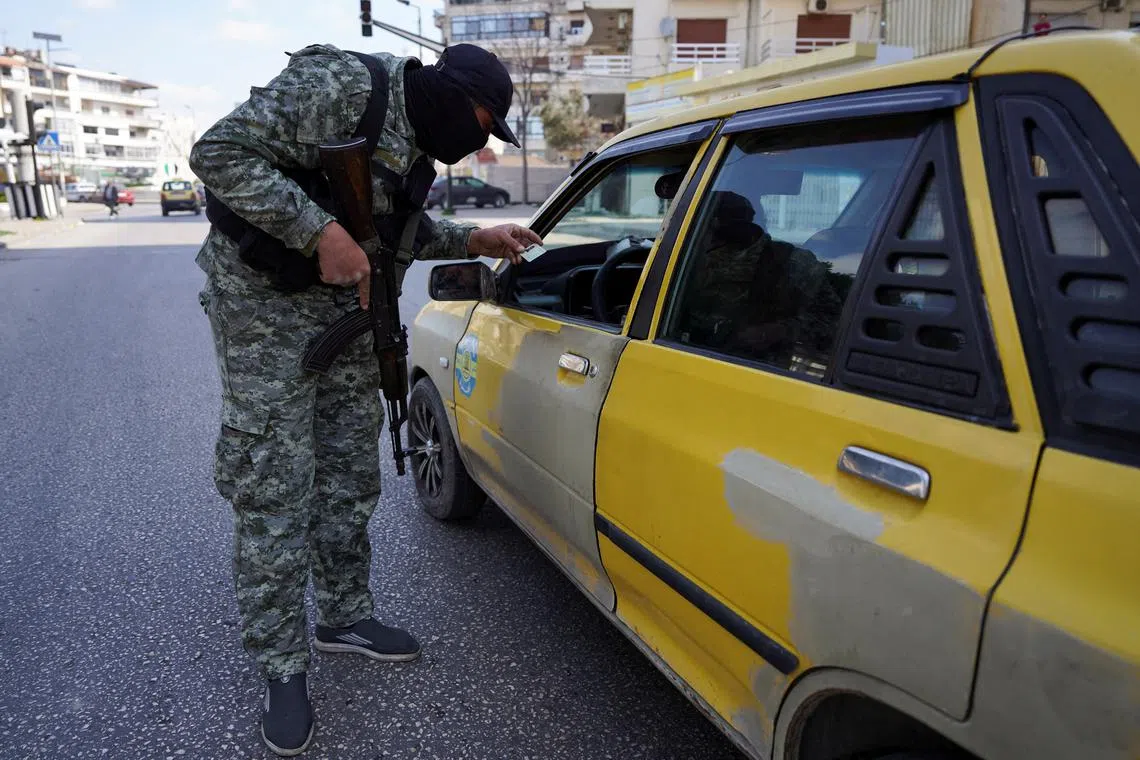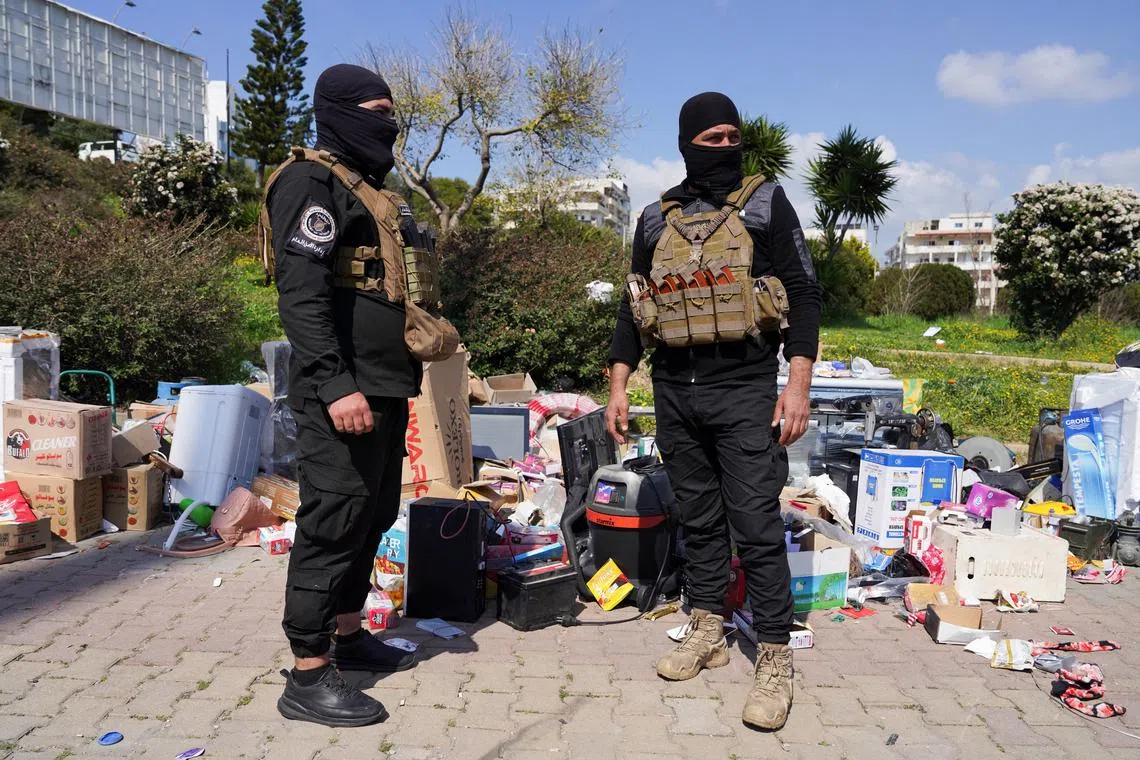Damascus faces demands for accountability after civilian killings
Sign up now: Get ST's newsletters delivered to your inbox

A member of the Syrian security forces checking the identity of an individual, after hundreds were killed in some of the deadliest violence in 13 years of civil war.
PHOTO: REUTERS
Follow topic:
DAMASCUS – Syria’s Islamist-led government on March 10 said it had completed a military operation against a nascent insurgency by loyalists of ousted president Bashar al-Assad, as it faced Western demands for accountability over the reported killing of hundreds of civilians.
The violence in Syria’s coastal region marks the biggest test for interim President Ahmed al-Sharaa since he seized power in December 2024,
Mr Sharaa, an Al-Qaeda leader before cutting ties with the group in 2016, has accused remnants of Mr Assad’s rule of seeking to drag Syria back into civil war.
He has announced the establishment of a fact-finding committee to look into the violence and vowed to hold to account those involved in civilian bloodshed.
In a Reuters interview, Mr Sharaa said mass killings of Alawites were a threat to his mission to unite Syria, and promised to punish those responsible, including his own allies if necessary.
The violence has shaken his grip on the country as his administration grapples with myriad challenges, notably getting US sanctions lifted and winning international backing for his efforts to stitch Syria back together after 14 years of conflict.
Germany said reports of the killing of civilians and prisoners were shocking, a day after US Secretary of State Marco Rubio condemned “the radical Islamist terrorists, including foreign jihadis, that murdered people in western Syria”.
A spokesperson for the German Foreign Ministry said the transitional government had a responsibility to prevent further attacks, to investigate the incidents and to hold those responsible to account.
The Syrian Defence Ministry arrested two people on March 10 after a video showed them “committing violations against civilians unlawfully and in a bloody manner” in one of the coastal villages, Syrian state news agency Sana reported.
The two men, whose affiliations were not clear, were referred to a military court, according to Sana.
Their detention was the first to be made public by the government since it announced the completion of its military operation to restore security.
Sectarian reprisals
Violence spiralled on March 6, when the authorities said their forces in the coastal region faced a well-organised attack by fighters aligned with the ousted Assad government.
As government reinforcements deployed, mosques in regions loyal to the new administration began calling on people to wage jihad, or holy struggle, in support of security forces.
By the afternoon of March 7, reports began emerging that scores of civilians had been killed in sectarian reprisals in Alawite towns and villages.

Members of Syrian security forces standing near belongings in Latakia, Syria, on March 10.
PHOTO: REUTERS
As at the evening of March 9, the Syrian Observatory for Human Rights – a British-based organisation that reports on the conflict – said 973 civilians had been killed in reprisal attacks carried out by government forces or fighters aligned with them.
More than 250 Alawite fighters and over 230 members of government security forces were killed, it said.
Reuters has not been able to independently verify the tolls.
Israel urges protection for minorities
Declaring an end to the government’s military operation, Defence Ministry spokesman Hassan Abdul Ghany said government forces “were able to neutralise” remnants of Mr Assad’s rule in seven locations and that security forces would cooperate with the investigation.
“We are paving the way for life to return to normal and for the consolidation of security and stability,” he said in statements published by state media.
Plans were in place to eliminate any future threats, he added.
Israeli Foreign Minister Gideon Sa’ar said the violence showed that Syria’s new rulers “remained jihadists, even if some of their leaders have put on suits”.
He told a political party meeting: “They must draw conclusions from what has happened and explore ways to protect minorities in Syria.”
Reuters reported in February that Israel has been lobbying the US to keep Syria weak and decentralised, including by letting Russia keep its military bases there to counter Turkey’s growing influence in the country.
The UN Security Council met behind closed doors on March 10, at the request of Russia and the US, to discuss the escalating violence in Syria.
Russia, which backed Mr Assad militarily during the civil war and still has two military bases in Syria, had reached out to the US to jointly ask for the meeting, Russia’s UN Ambassador Vassily Nebenzia said. REUTERS

